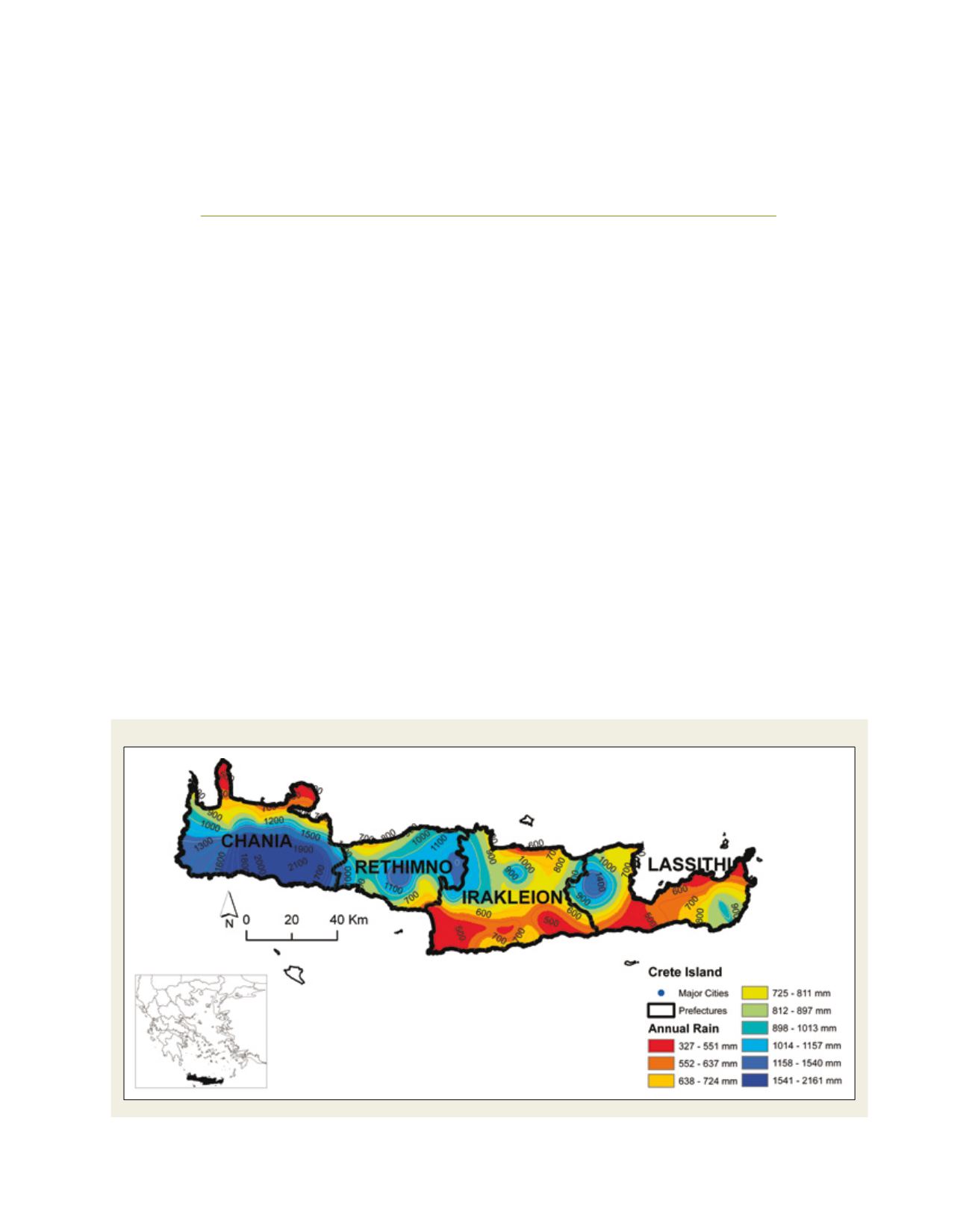

[
] 283
Water resources management on
the island of Crete: lessons learned
E. Baltas, Associate Professor, School of Civil Engineering, National Technical University of Athens;
and O. Tzoraki, Assistant Professor, School of Environment, University of Aegean
T
he island of Crete has limited water resources and
growing water demands. Therefore, an important goal of
water resources management on the island is to achieve
a hydrological balance and promote understanding in the local
community about the problem of water shortage. Lack of coop-
eration among Crete’s several water authorities, institutions and
services has often meant that water issues enter a ‘labyrinth’, but
a process of stakeholder participation at all stages of manage-
ment plan creation has resulted in a real influence on policy
design and implementation. In addition to effective cooperation
among end users, measures such as managed aquifer recharge,
village connection to wastewater treatment plants, ecological
river flow, erosion elimination and flood control are now being
considered to prevent drought and ecological problems.
In Mediterranean countries and especially in Greece, demand on fresh
water is continuously increasing due to population growth, improving
living standards and economic development.
1
The fact that the major-
ity of rainfall events occur during the autumn and winter months, and
that water demand increases during the summer, creates a
discrepancy between water supply and demand. The small
drainage areas in many Greek islands, in combination
with high slopes and restricted rainfall volumes, result in
the desiccation of rivers and wetlands during the summer.
Common measures in the face water shortage include
dam construction, river abstractions and overexploitation
of groundwater.
2
The threat of seawater intrusion prohib-
its the use of existing, near-shore aquifers. At the same
time, climate change has limited water resource avail-
ability. The Intergovernmental Panel on Climate Change
expects that by 2050,the annual average river flow will
have decreased by 10-30 per cent over some dry regions at
mid-latitudes and semi-arid low latitudes.
3
Consequently,
extended areas of southern Europe are going to suffer
from water stress and desertification. These complexities
are posing great challenges to decision makers and water
managers who are working to maintain both economic
development and environmental protection.
E
conomic
D
evelopment
and
W
ater
Mean annual precipitation on the island of Crete
Source: Ministry of Environment, 2013


















